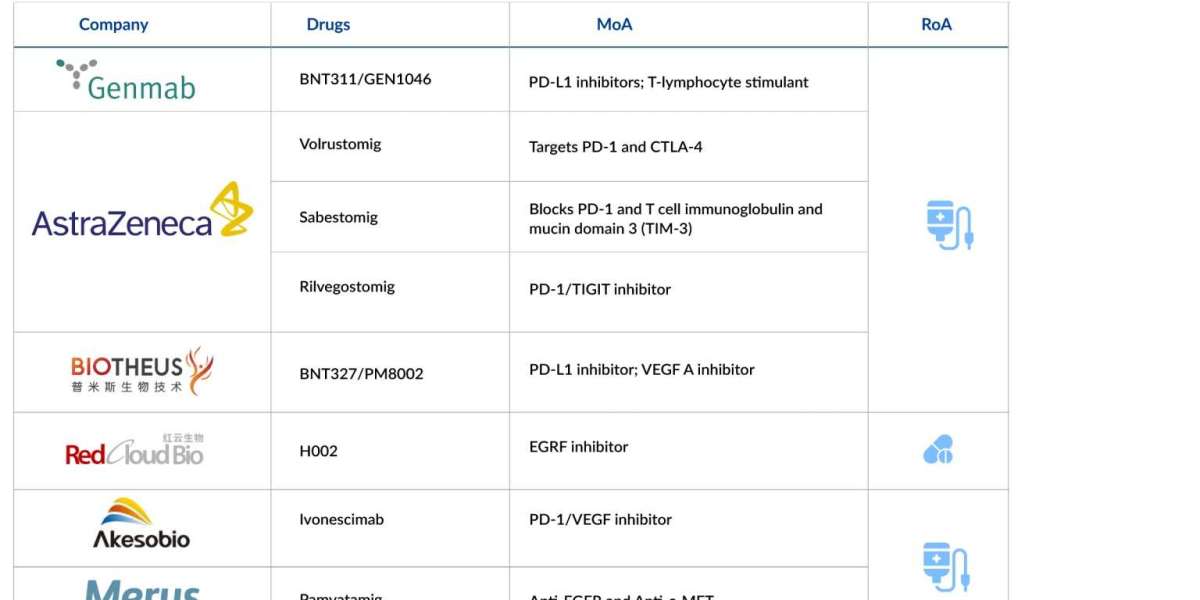Non-Small Cell Lung Cancer (NSCLC) is the predominant form of lung cancer, representing about 85% of all lung cancer cases. It is also one of the leading causes of cancer-related deaths worldwide. Although significant progress has been made in treatment options, including immunotherapies and targeted therapies, many patients still face poor outcomes, especially in advanced stages of the disease. The advent of bispecific antibodies offers a glimmer of hope, transforming the treatment landscape for NSCLC by providing more targeted and effective therapeutic approaches.
Unlike conventional therapies, bispecific antibodies are engineered to target two distinct antigens at the same time, enabling them to activate immune responses more efficiently and block multiple tumor-promoting pathways. This dual-target mechanism makes bispecific antibodies a powerful tool in NSCLC treatment, helping to overcome challenges like tumor resistance and immune evasion.
One of the most promising bispecific antibodies in the treatment of NSCLC is Biontech PD-1 VEGF bispecific. This innovative therapy combines two key approaches: the PD-1 immune checkpoint inhibitor and VEGF, a protein responsible for promoting angiogenesis, or the growth of new blood vessels that tumors need to thrive. By targeting PD-1, the antibody helps the immune system recognize and eliminate cancer cells. Simultaneously, the VEGF component blocks the formation of new blood vessels, starving the tumor of necessary nutrients and oxygen. The dual action of this bispecific antibody holds immense potential for overcoming tumor resistance mechanisms and enhancing the immune system’s ability to attack cancer cells.
Another promising bispecific antibody is Volrustomig, which targets both PD-1 and TIGIT. While PD-1 inhibitors are known for rejuvenating immune cells and enabling them to combat tumors, TIGIT is another checkpoint that suppresses immune responses. By targeting both, Volrustomig has the potential to reactivate exhausted immune cells, improving their ability to fight cancer. This approach is currently being investigated in early-phase trials, with promising preliminary results indicating that it may be a game-changer for patients with advanced NSCLC.
The development of other Emerging NSCLC drugs, such as KN046, which targets PD-L1 and CTLA-4, and IBI322, which focuses on CD47 and PD-L1, is further expanding the scope of bispecific antibody treatments. These therapies aim to modulate the tumor microenvironment, enhancing immune responses and facilitating the elimination of cancer cells. Through mechanisms like inhibiting immune evasion and promoting phagocytosis, these bispecific antibodies offer new hope for patients with difficult-to-treat, advanced NSCLC.
The emergence of bispecific antibodies in the NSCLC treatment landscape is largely driven by the efforts of leading NSCLC companies like BioNTech, Amgen, Akeso Biopharma, and Innovent Biologics. These companies are pioneering the research and development of innovative bispecific antibody therapies for NSCLC, with several treatments already in early-stage clinical trials. Their contributions are vital in expanding the NSCLC drug pipeline, and they are playing an essential role in the future of cancer treatment.
Looking ahead, the future of NSCLC treatment appears promising, with bispecific antibodies offering a more precise and potent treatment option for patients. The ability to simultaneously target multiple tumor pathways enhances the immune system’s ability to combat cancer, improving overall treatment efficacy. As the pipeline continues to evolve and clinical evidence mounts, bispecific antibodies are expected to play an increasingly central role in NSCLC therapy, providing better treatment options for patients and potentially improving long-term survival.
In conclusion, bispecific antibodies represent a significant advancement in Non-Small Cell Lung Cancer (NSCLC) treatment. With their dual-target capabilities, these therapies have the potential to overcome tumor resistance and improve immune responses, offering new hope for patients battling this aggressive cancer. Ongoing research and clinical trials will continue to shape the future of NSCLC treatment, with bispecific antibodies leading the way to more effective therapies and better patient outcomes.
Latest reports offered by Delveinsight
ANCA Vasculitis Market | B-cell Maturation Antigen Targeted Therapies Market | Bacterial Pneumonia Market | Cataract Surgery Complications Market | Chagas Disease Market | Coccidioidomycosis Market | Diabetic Gastroparesis Market | Facial Lines Market | Herpes Labialis Market | Human Papillomavirus-Positive Oropharyngeal Cancer Market | Hypophosphatasia Market | Intraocular Lymphoma Market | Kawasaki Disease Market | Langerhans Cell Histiocytosis Market | Nephrotic Syndrome Pipeline | Neurogenic Detrusor Overactivity Market | Osteochondrodysplasia Market | Pigment Epithelial Detachment Market | Presbyopia Market | Primary Ciliary Dyskinesia Market


